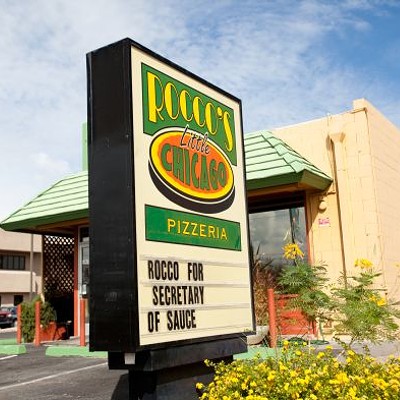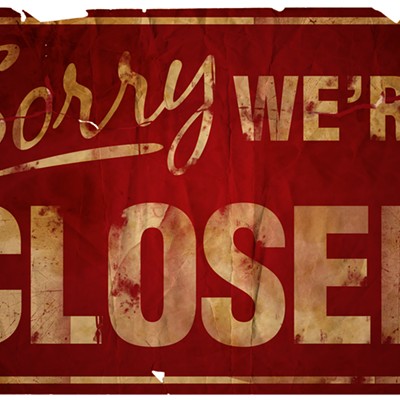Yet every living thing wants to stay alive, says the Buddha--another guy who was usually right. We all want to live forever, and secretly, in our heart of hearts, we think we will. Every dog, every bird and every bug operates under the assumption that it's immortal, not to mention the crown of creation. The world was made for each of us, and with us, it dies. Or at least becomes empty and sad.
These universal truths come crashing together at the end of life, as the dying struggle to stay alive for another month, another week, another hour. No matter how awful the conditions, we insist upon living, and so strong is the habit of life that even after thought and will and desire have been obliterated, the body will fight all on its own to keep going.
For example: My father died almost instantly one winter morning when a massive brain bleed filled his skull with blood, but his heart stopped beating only two days later. His body's struggle was as heroic as it was terrible.
All of this is hard, really hard, but it's human. What isn't human, or even natural, are the huge profits exacted from the desperate and dying by physicians and hospitals and drug companies, who justify their exploitation of the sick by pretending that patients are consumers. You know, like girls at the mall?
Until last Wednesday (Feb. 15), you probably could have convinced me that I'm overly cynical about the values and methods of the American medical industry. That was before I read an article in The New York Times about a new cancer drug called Avastin that costs $50,000 a year. (Check out that name. Weirdly, Roche, the parent company of Genentech, which developed the drug, has coded theft right into it: Where could this undoubtedly focus-grouped, fake-Latin combination of syllables come from but boyhood memories of cartoon pirates crying, "Avast, me maties?")
Many late-stage colon-cancer patients who might benefit from Avastin--"a superb drug," according to the former president of the American Society of Clinical Oncology--are not getting it because of the cost: Even patients whose insurance companies spring for it may not be able to afford the co-payments. Others are paying for it out of pocket, stripping themselves and their survivors of their assets in the process.
But wait--$50,000 is the bargain price. If you are unfortunate enough to develop advanced breast or lung cancer, Avastin might also prolong your life "by several months when ... combined with existing therapies," but you'll require a higher dose that will run you roughly $100,000 a year. According to the Times, the added cost to Roche of producing the higher dose is minimal, but the company thinks "the health economics hold up," and sees no reason to revisit its pricing schedule.
A hundred thousand dollars. That's a college education, half a three-bedroom house in Tucson, a good chunk of what the average American manages to accrue over a lifetime. Prescriptions for just 10 patients mean $1 million a year for Genentech. And the stuff doesn't give you eternal life, or typically anything more than a few extra sleepless, pain-filled, humiliating months inside a dying body. (The average late-stage colon-cancer patient takes Avastin for 11 months, and it adds an average of five months to her life, as compared with other therapies.) But that's the kind of deal many people are willing to make when they're facing death.
Everyone knows by now that pharmaceuticals are a government-sanctioned rip-off of gigantic proportions, but the advent of Avastin seems to mark the dawn of an out-front new era in corporate medical predation. Roche isn't even bothering to pretend that the price reflects its development costs, having perhaps recognized that most of us know by now that drug companies' research budgets are dwarfed by what they spend on advertising. Genentech's president of product development has said that the company, already known for its "aggressive" pricing, set the drug's price based on "the value of innovation, and the value of new therapies." In other words, $8,000 a month is what they think they can squeeze out of terminally ill patients and their families.
But, hey, maybe the price really does seem reasonable to them. Let's be generous: The people who make the decisions in these companies are millionaires, and so are all their friends. So are many doctors. So are most people with any juice in this government. (When Dick Cheney drills an old friend, for example, you know the victim is bound to be wealthy, and the bystanders are just as rich. Our vice president would never shoot a poor or middle-class person, because he never comes near one. Hasn't for years. You and I are perfectly safe.)
Perhaps the people who run this country simply cannot imagine what it's like not to be rich, how it would feel to have to choose between dying right away in a house you still own, or later in one you've mortgaged to pay for a prescription.
They do not know and will not listen--just look at the president's witless health-savings-account scheme. The only revenge is in recognizing that they, too, will die. At the last possible moment and surrounded with every luxury--you can bet on that--but die they will. It's a primitive source of comfort, but a sure one.






